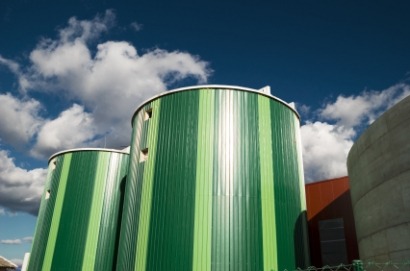
Mechanical biological treatment (MBT) plants produce refuse-derived fuel from municipal waste or treat this waste in such a way that it can be landfilled according to the specifications of the EU Landfill Directive. MBT technology was primarily developed as an alternative to waste incineration.
At present, there are about 330 operational mechanical biological treatment plants throughout Europe. They have the capacity to treat about 34 million tons of municipal waste annually. Since 2009, at least 25 MBT plants have been newly commissioned per year in Europe – more than ever before.
About five years ago, the future did not seem to be that bright for the MBT industry: many of the newly constructed MBT plants experienced technological problems, especially the ones in Germany. Some locations, like Buchen or Heilbronn, even had to shut down a few months after their commissioning. Acceptance of MBT plants decreased rapidly. In 2006, only 12 plants went operational throughout Europe. Instead, waste incineration was booming and became the dominant waste treatment technology.
But now, the demand for MBT plants is higher than ever before.In some countries, like France or Spain, MBT plants primarily get a chance because there are many concerns about waste incineration. In other states, like Great Britain, MBT plants benefit from the considerably increasing demand for refuse-derived fuels (RDFs). The amount of RDF that is being incinerated as a substitute of primary energy carriers grows in cement mills, coal-fired power plants or RDF power plants especially constructed for this purpose.
ecoprog for example estimates in its recently published “The European MBT market” report that the number of MBT plants in Europe will increase to about 450 and the plant capacities will rise from currently 34 million annual tons to 46 million tons by 2016.
Saxlund driving this growth
Saxlund International GmbH, a fully-owned subsidiary of the energy and environmental technology group, Opcon AB, is one such company that is rolling out waste-to-energy solutions and helping this market to grow.
It has just has won an order worth 8 million SEK for the expansion of the waste-to-energy solution at the City of Karlsruhe’s waste water treatment plant in Germany. The order is for a turnkey expansion to a system designed and delivered by Saxlund in 2002 that will allow Karlsruhe’s waste water treatment plant to increase its capacity to take care of sewage sludge from other waste water treatment plants in the vicinity. The sludge will be dried and used as biofuel for the production of renewable heat and power, replacing fossil fuels in Karlsruhe’s energy mix.
Since the passing of the German law prohibiting the use of sludge in landfill some six years back, Germany has spearheaded the development of waste-to-energy solutions in this field. With 20 years of experience, Saxlund is established as a technology leader within this area. Just in the last month, the company finished the commissioning of a similar system for the Hamburg Köhlbrandhöft, Germany’s largest waste water plant, and also won an order for a similar expansion to another large German city, Stuttgart, says Rolf Hasselström, CEO Opcon AB.
For additional information:


